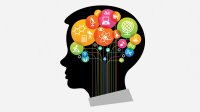The Tyranny of Being On Task
Students need periodic breaks to ease brain strain, and the perceived demand that they should always be on task is unrealistic.
Your content has been saved!
Go to My Saved Content.I remember when I was first teaching and was getting ready for my first official observation and evaluation. I was very nervous. My principal had told me she would be looking for a classroom where students were on task. Heaven forbid that any students were off task. I thought that if my classroom even hinted that some students were off task, I would never be a successful teacher, and perhaps told to leave the teaching profession.
I now know that it is unreasonable to ensure complete on task behavior from every student at all times, but back then I wanted a good evaluation, and I wanted my students to be on task so that they would learn and I could support them. Before the observation, I was told by my colleagues to have students quietly work on an assignment after I gave some instruction. “Don’t have them do group work. Don’t have them present. It’s too risky!” This advice seemed to be successful. When my principal came in, the students were quiet as I moved around to check in with them. After the observation, I was praised for my success in keeping students on task.
Many years later, I taught in a school with a focus on project-based learning. Learning was messy and conflicts emerged as students worked together to solve problems, but ultimately students succeeded. The meaning of “on task” was different there. Yes, there were times when students were off task and I needed to redirect them. Yet I struggled with the expectation of consistent on task behavior.
There seem to be forces in education that push us to make sure students are on task. Why do we attempt to meet that demand when we know it’s unreasonable? Why do we demand on task behavior when it is not equivalent to student engagement? Isn’t it OK for students to be off task from time to time? In fact, don’t students need time to be off task? To take it to another level, what if off task is really on task?
What Does the Science of the Brain Tell Us?
Adults have built executive functions of the brain, and we receive a dopamine reward when we do the right thing. Our students have not yet built up those functions. In the teenage years, students receive that same dopamine reward for very different behavior, when they take risks and explore. When a student does something that is a risk in the classroom, something we might consider off task behavior, they are doing so because they receive a dopamine reward for doing so. Science tells us that students will not only be off task on occasion but might even have strong motivations to behave that way.
What Can We Do?
Instead of working against off task behavior, we should embrace it and try to reframe it as an on task moment that is necessary and useful to our students. Judy Willis calls such moments brain breaks in her book Research-Based Strategies to Ignite Student Learning. She wants us to understand that such breaks are needed and are useful to students. They prevent the brain from becoming overloaded and give time for information to be processed and retained effectively. On a related note, Eric Jensen explains that movement gives new spatial meaning to information being processed, and increases oxygenation of the brain as well (subscription required).
We should explore ways to incorporate brain breaks more into our classroom routines and norms. Some other practical strategies include:
- Be mindful of students’ attention span and chunk activities and tasks appropriately.
- Break up tasks with conversations and checks for understanding.
- Admit personal challenges and failures related to staying on task.
- Meet with students one on one to discuss off task behavior rather than shame them.
- Smile and laugh more.
- Balance louder and quieter activities.
- Move more.
Brain breaks are essential to classroom culture and student learning. These seemingly off task moments are truly on task because they provide a space for students to learn better, and take into account the fact that students are growing and maturing. Brain breaks are responsive to students and help us become allies of their behavior rather than punitive figures. In fact, brain breaks help us as educators to rethink the binary nature of on task and off task and to realize that all the work is on task and helpful to children as they learn and grow.
What brain breaks do you use in your classroom?
